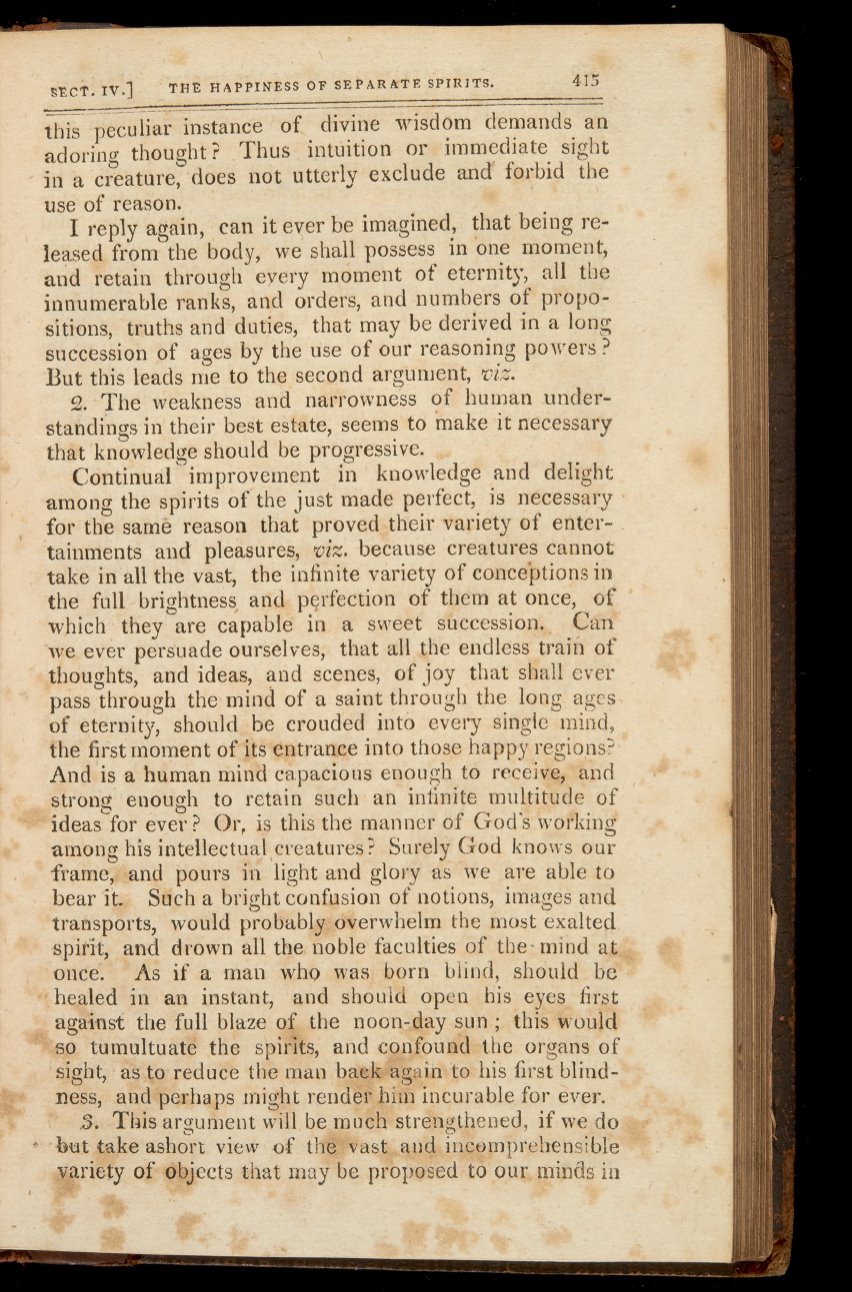

SECT.
IV.]
THE HAPPINESS
OF
SEPARATE SPIRITS.
415
this peculiar instance
of
divine wisdom
demands an
adoring thought
?
Thus intuition or
immediate sight
in a creature, does
not
utterly exclude
and
forbid the
use of
reason.
I
reply again, can
it
ever
be
imagined,
that
being re-
leased from
the
body,
we
shall possess in
one
moment,
and retain through
every
moment
of
eternity,
all
the
innumerable
ranks,
and
orders, and numbers
of propo-
sitions,
truths
and duties,
that
may be
derived
in
a
long
succession
of
ages by
the
use
of
our reasoning powers
?
But
this
leads
me to
the second argument,
viz.
2.
The
weakness
and narrowness
of
human
under
-
standings
in
their best
estate,
seems to
make it necessary
that
knowledge
should
be
progressive.
Continual improvement
in knowledge
and delight
among
the spirits
of
the
just
made perfect,
is
necessary
for
the samè reason
that
proved
their variety
of enter-
.
tainments
and
pleasures,
viz.
because
creatures cannot
take
in all
the
vast,
the infinite variety
of
conceptions in
the
full brightness
and
perfection
of
them
at
once,
of
which they
are capable
in a
sweet succession..
Can
we
ever
persuade
ourselves,
that
all
the endless
train
of
thoughts, and
ideas,
and
scenes,
of
joy that
shall
ever
pass
through the
mind
of
a
saint through the long
ages
of
eternity, should be crouded into every
single mind,
the
first
moment of
its
entrance into
those happy regions?
And
is
a
human
mind
capacious enough
to
receive,
and
strong
enough
to
retain
such an infinite
multitude
of
ideas
for
ever
?
Or,
is
this the
manner
of
God's
working
among
his
intellectual creatures?
Surely
God
knows
our
frame,
and
pours
in
light and glory
as we
are
able to
bear
it.
Such
a bright
confusion
of
notions, images
and
transports,
would probably: overwhelm
the
most
exalted
spitit, and
drown all the noble faculties
of
the mind
at
once.
As
if
a
man
who
was
born
blind,
should be
healed in an instant, and should open
his eyes
first
against
the
full blaze
of
the noon -day
sun
;
this would
so
tumultuaté the
spirits, and
confound the organs
of
sight, as to
reduce
the man
back again
to his
first
blind-
ness,
and perhaps might
render
him
incurable
for ever.
S.
This argument
will
be much
strengthened,
if
we
do
but take
ashort
view
of
the vast and incomprehensible
variety
of
objects
that
may
be
proposed
to
our
minds in

















